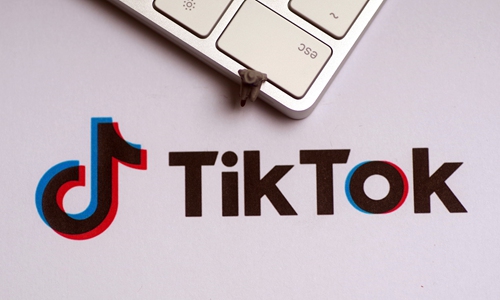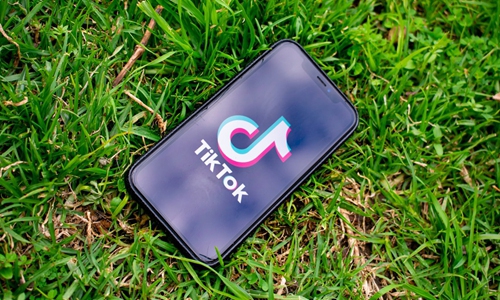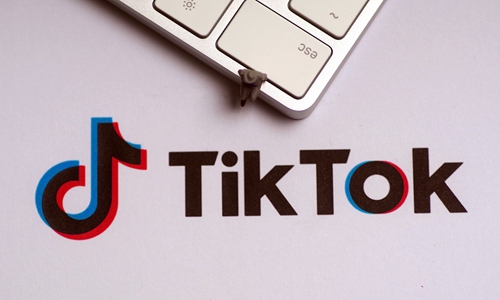SOURCE / INDUSTRIES
Prejudice lies behind data privacy claims
TikTok ban aims to sustain US hegemony in internet industry

TikTok Photo: VCG
The US crackdown on Chinese technology companies, based on allegations that they will breach data privacy reflects the US government's prejudice more than reality, analysts said.
They noted that TikTok, like all consumer-oriented companies, collects a certain amount of data from users within a limited business scope. The balance of data privacy and technological development is still being sought by global authorities.
The comments came as the administration of US President Donald Trump has intensified its bans, and it is pressuring its allies to crack down on Chinese enterprises such as Huawei, TikTok and WeChat, citing so-called security concerns without providing any evidence. Authorities in Europe have stepped up a probe of TikTok over data privacy concerns.
France's data privacy watchdog Commission Nationale Informatique & Libertés said Tuesday that it has opened a preliminary probe into the Chinese social media platform. TikTok is also facing broader scrutiny of its privacy policies by Dutch authorities.
What's at stake is an intensified competition in the upcoming data era, where Chinese technology companies have shown rising competitiveness, a data analyst at a US-based consulting and public relations firm, who preferred to remain anonymous, told the Global Times Thursday.
"Forced sale of TikTok, with its successful algorithms, could consolidate US dominance and hegemony in this industry," said the analyst.
It's almost impossible for TikTok to violate the data privacy of its US users and pose a so-called national security threat, because its servers, data, content viewers and management team are all based in the US, the analyst said.
CIA analysts said previously that it is possible that Chinese intelligence authorities could intercept data or use TikTok to bore into smartphones. But there is no evidence they have done so, according to US media reports.
Internet giants have the opportunity to collect more user data due to their wide business scope and technology strength, regardless of whether it is domestic or foreign, Li Danjiang, founder of Chinese technology company Pxierra Inc, told the Global Times Thursday.
Generally, US technology giants, which have a higher global presence than their counterparts, may have more opportunities to collect massive amounts of user data worldwide, analysts said.
In the most recent case, Facebook was accused of illegally harvesting the biometric data of more than 100 million Instagram users in new legal proceedings in California. The lawsuit alleges that the photo-sharing app collected, stored and profited from the data of users without their knowledge or consent.
Australia's competition regulator said in late July that Google was misleading consumers to get permission for the use of their personal data for targeted advertising, and it is seeking a fine "in the millions" and aiming to establish a precedent, according to a Reuters report.
However, analysts said the issues of data protection and internet development are global ones, and a mature data security law is yet to come globally. Any such laws at present are experimental in nature.
Globally, the only specific law for data protection is the General Data Protection Regulation, or GDPR, which gives EU authorities the power to fine companies as much as 4 percent of global annual sales for the most serious violations, An Jincheng, research associate of the Cybersecurity Association of China, told the Global Times Thursday, while noting that however the strictest law in the EU also contained the development of its artificial intelligence and other digital industries.
China's top legislature has approved a cyber-security law, and the civil code involves personal data.
Data security is also on the legislative agenda. The level of information protection in China is increasing. Western countries, such as the US, need to acknowledge this rather than turn a blind eye, An said.
"The US should also drop the stereotype that Chinese companies will obey the orders of the Chinese government, which is unfair," An told the Global Times.


